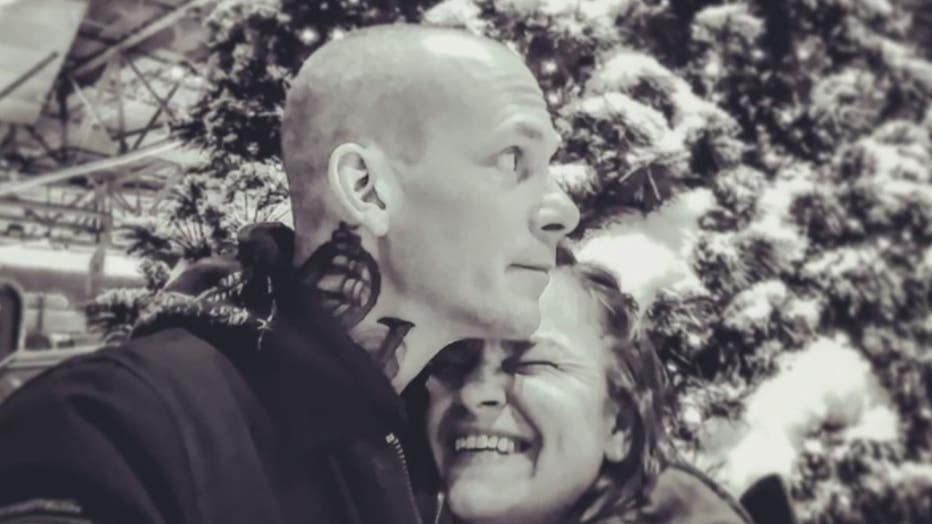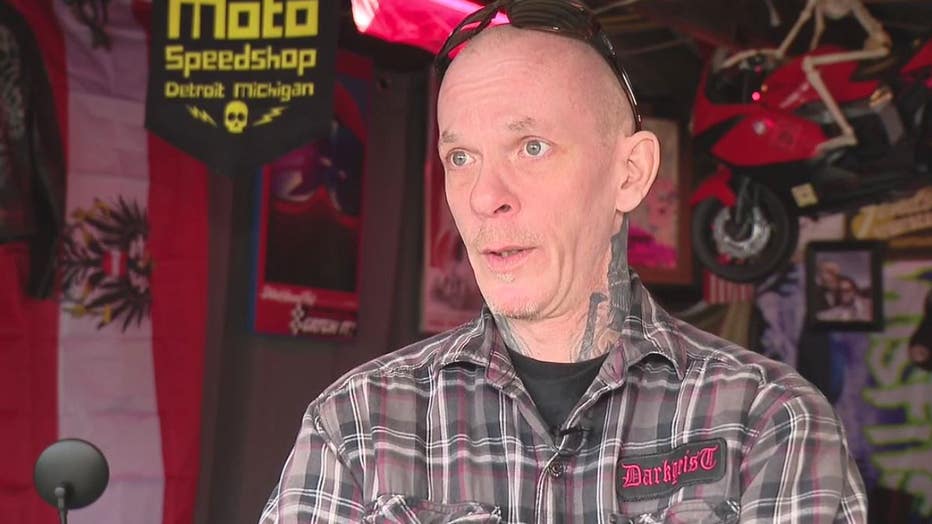Colon cancer survivor ignored early symptoms, but shares his story to help others

Colon cancer prevention starts with early detection
It's a fact - colorectal cancer is on the rise among younger adults, which is why Dr. Claire Peeples wants everyone to talk about what might seem like unspeakable symptoms.
FOX 2 (WJBK) - A Rochester Hills man says his body was trying to tell him something was wrong, but in his late 40s he ignored symptoms and it cost him a lot.
He hopes telling his story will make a difference.
Jason Maman's love for motorcycles has not changed, but the way the 50-year-old now lives and looks at life is in fact, very different. He used to spend most of his time in a hot kitchen.
"I ran many restaurants in Metro Detroit for the past 25 years, mostly high-end stuff, and then cancer came and I couldn't do that kind of work anymore," he said.
In 2019, shortly before the Covid pandemic, Jason began to suffer from ongoing, severe abdominal pains.
"By November of that year, there was blood in my stool, I lost weight significantly in a short amount of time without a change to my eating habits," he said. "That's when I got scared - so, scared into seeing a doctor, basically."
Jason is 46, and immediately ordered to get his first colonoscopy. The procedure that sends a camera twisting and turning through about five feet of the colon.
The goal is to find precancerous growths and remove them. In Jason's case, doctors discover stage 3 cancer.
"He had a rectal cancer, and it was a very low rectal cancer," said Dr. Claire Peeples.
Peeples, a Corewell Health East colorectal surgeon, starts attacking Jason's cancer with both chemotherapy and radiation to shrink the tumors.
But at the same time, Jason's wife got her own diagnosis.
"My wife was diagnosed with breast cancer two weeks after I was diagnosed with this," he said. "So she went through a double mastectomy, and her own chemo and things like that.
"In a way it was a blessing, because we didn't have time to react. It was just, get to this appointment, go to see this doctor, and go to this procedure. So there was no time for 'poor me' - it was just taking care of business, taking care of our kids, supporting each other through the whole thing. And then all of a sudden, the dust cleared and we're both cancer-free."

Jason Maman and his wife
Ultimately Jason would also require life-altering surgery to rid his body of the cancer. He had parts of his intestine, colon and rectum removed.
"I'm like a Ken doll on the backside if that's not being too graphic," he said. "I have the permanent ostomy bag that hangs off my stomach," Jason said.
He wishes he could go back and go to a doctor as soon as the symptoms showed up.
Jason's colon is now permanently rerouted to that bag. It is a tough reality he has to accept, but he shares this very personal struggle in hopes this won't happen to anyone else.
"It takes an hour to get a test and they'll tell you right afterward what's going on - it's that quick," he said. "That's my only and biggest regret not getting it checked out."
"I think his thoughts were, 'Well, I'm young and there's probably nothing going on with me,' so he kind of put it off," said Dr. Peeples.
But it's a fact - colorectal cancer is on the rise among younger adults, which is why Dr. Peeples wants everyone to talk about what might seem like unspeakable symptoms.
"If any signs of bleeding, or change in your bowel habits with constipation or diarrhea check with your doctor," she said. "Because I don't hesitate nowadays to consider ... everyone that walks into my office if they are not up-to-date on their colonoscopy, or have not had a colonoscopy, I am always thinking that in the back of my mind."
"It's a cliche, but if it helps one person it's worth it," he said.
The age of 45 is now the recommended age for colon cancer screening. Now Jason actually has a family history so had he gone to his doctor, he could have gotten a screening regardless of his age.
What raises your risk for colorectal cancer? There are some lifestyle factors:
- Obesity
- Smoking
- Eating processed foods
- A sedentary lifestyle
But remember, a colonoscopy is a very good screening if you start to get concerned about symptoms.

Jason Maman

